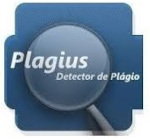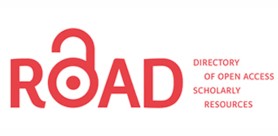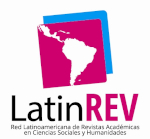WHATSAPP AS A POSSIBILITY OF PEDAGOGICAL MEDIATION
DOI:
https://doi.org/10.47180/omij.v3i3.182Keywords:
Foreign languages., English., Spanish., Digital literacy., WhatsApp., Multimodality.Abstract
This article presents theoretical reflections on the use of the WhatsApp in language teaching to enhance the development of students' literacy. The theory used was based on the basic principles of Partnering Pedagogy (PRENSKY, 2010), a proposal that privileges the partnership between teacher and students in the process of teaching and learning languages. The reflections were supported by the notions of textual genres (BAZERMAN, 2006) and the concepts of digital literacy (SANTAELLA, 2013; RIBEIRO, 2016; 2018). This article, furthermore, makes use of the WhatsApp application as a possible mediator for the design and implementation of activities with a view to promoting the multiple literacies necessary for life in the contemporary networked society.
Downloads
References
BAZERMAN, C. Gêneros Textuais, tipificação e interação. In: BAZERMAN, C.; DIONÍSIO, A.P.; HOFFNAGEL, J.C. (Orgs.) 2 ed., São Paulo: Cortez, 2006.
CARMAN, J. M. Blended Learning Design: Five Key Ingredients. 2005.
HAMAD, M. M. Using WhatsApp to enhance students’ Learning of English Language “Experience to Share”. Higher Education Studies. v. 7, n. 4, p. 74-87. 2017. DOI: https://doi.org/10.5539/hes.v7n4p74
INOCENCIO, L.; LOPES, C. P. ‘Brace yourselves, the zuera is coming’: memes, interação e reapropriação criativa dos fãs na página Game of Thrones da Depressão. In: Intercom – Sociedade Brasileira de Estudos Interdisciplinares da Comunicação XVIII Congresso de Ciências da Comunicação na Região Nordeste, 18., 2015, Natal – RN. Anais […]. Natal: Intercom, 2015. p. 01-15.
KALANTZIS, M.; COPE, B. Literacies. Cambridge University Press: Cambridge, 2012. DOI: https://doi.org/10.1017/CBO9781139196581
KLEIMAN, A. Modelos de Letramento e as práticas de alfabetização na escola. In: Angela Kleiman. Os significados do Letramento – uma nova perspectiva sobre a prática social da escrita. Campinas – SP: Mercado de Letras, 1995, p.15-61
LEE, C.; BARTON, D. Linguagem Online – textos e práticas digitais (Tradução Milton Camargo Mota), 1 ed. São Paulo: Parábola Editorial, 2015.
PRENSKY, M. Teaching Digital Natives. UK: Corwin Press, 2010.
RIBEIRO, A. E. Textos Multimodais – leitura e produção. São Paulo: Parábola Editorial, 2016.
RIBEIRO, A. E. Escrever, hoje: palavra, imagem e tecnologias digitais na educação. 1 ed. São Paulo: Parábola Editorial, 2018.
ROJO, R. H. R. Pedagogia dos multiletramentos: diversidade cultural e de linguagens na escola. In: ROJO, R. H. R; MOURA, E. (Org.). Multiletramentos na escola. São Paulo: Parábola Editorial, 2012. p. 7-31.
ROJO, R. (Org.) Escol@ Conectada: os multiletramentos e as TICs. São Paulo: Parábola, 2013.
SANTAELLA, L. Desafios da Aprendizagem ubíqua para a Educação. In: Lúcia Santaella, Comunicação ubíqua: repercussões na cultura e na educação. São Paulo: Paulus, – (Coleção comunicação), 2013, p. 285-307. DOI: https://doi.org/10.20952/revtee.v0i0.3446
XAVIER, M. M.; SERAFIM, M.L. O WhatsApp impactando novas possibilidades de ensinar e de aprender no contexto acadêmico. São Paulo: Mentes Abertas, 2020. Disponível em: https://drive.google.com/file/d/1VYSmqDWTkLmT0J2Pgw3iSE3I6K77lxUM/view?usp=sharing Acesso em: 10 jun. 2022.
Downloads
Published
How to Cite
Issue
Section
License
Copyright (c) 2022 Open Minds International Journal

This work is licensed under a Creative Commons Attribution-NonCommercial-NoDerivatives 4.0 International License.
The authors declare that any work submitted, if accepted, will not be published elsewhere, in English or in any other language, and even electronically, unless it expressly mentions that the work was originally published in the Journal.













